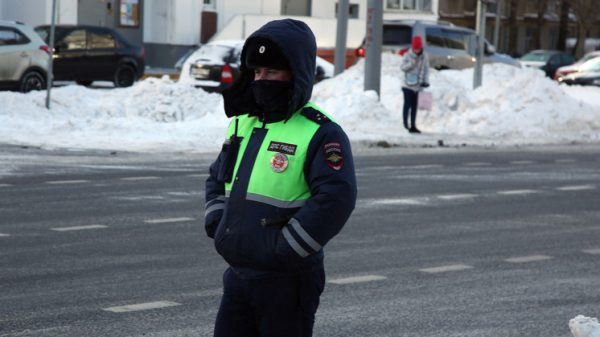“Ordinary people here in China aren’t happy about this technology but they have no choice. If the police say there have to be cameras in a community, people will just have to live with it. There’s always that demand and we’re here to fulfil it.”
So says Chen Wei at Taigusys, a company specialising in emotion recognition technology, the latest evolution in the broader world of surveillance systems that play a part in nearly every aspect of Chinese society.
Emotion-recognition technologies – in which facial expressions of anger, sadness, happiness and boredom, as well as other biometric data are tracked – are supposedly able to infer a person’s feelings based on traits such as facial muscle movements, vocal tone, body movements and other biometric signals. It goes beyond facial-recognition technologies, which simply compare faces to determine a match.
Facial recognition for pigs: Is it helping Chinese farmers or hurting the poorest?
Read more
But similar to facial recognition, it involves the mass collection of sensitive personal data to track, monitor and profile people and uses machine learning to analyse expressions and other clues.
The industry is booming in China, where since at least 2012, figures including President Xi Jinping have emphasised the creation of “positive energy” as part of an ideological campaign to encourage certain kinds of expression and limit others.
Critics say the technology is based on a pseudo-science of stereotypes, and an increasing number of researchers, lawyers and rights activists believe it has serious implications for human rights, privacy and freedom of expression. With the global industry forecast to be worth nearly $36bn by 2023, growing at nearly 30% a year, rights groups say action needs to be taken now.
‘Intimidation and censorship’
The main office of Taigusys is tucked behind a few low-rise office buildings in Shenzhen. Visitors are greeted at the doorway by a series of cameras capturing their images on a big screen that displays body temperature, along with age estimates, and other statistics. Chen, a general manager at the company, says the system in the doorway is the company’s bestseller at the moment because of high demand during the coronavirus pandemic.
Chen hails emotion recognition as a way to predict dangerous behaviour by prisoners, detect potential criminals at police checkpoints, problem pupils in schools and elderly people experiencing dementia in care homes.
Taigusys systems are installed in about 300 prisons, detention centres and remand facilities around China, connecting 60,000 cameras.
“Violence and suicide are very common in detention centres,” says Chen. “Even if police nowadays don’t beat prisoners, they often try to wear them down by not allowing them to fall asleep. As a result, some prisoners will have a mental breakdown and seek to kill themselves. And our system will help prevent that from happening.”
Chen says that since prisoners know they are monitored by this system – 24 hours a day, in real time – they are made more docile, which for authorities is a positive on many fronts. “Because they know what the system does, they won’t consciously try to violate certain rules,” he says.
Q&A What is the Digital Citizens series?
Show
Hide
As part of our Rights and Freedoms project, we investigate how rapid advances in data-intensive technologies are affecting human rights around the world.
Under the cover of the pandemic, many governments have used digital technologies to track and analyse citizens’ movements, quash dissent and curtail free speech – while on digital platforms truth has been manipulated and misinformation spread.
But technology can also be a powerful force for hope and justice, helping to preserve rights and freedoms in the face of rising authoritarianism.
Was this helpful?
Thank you for your feedback.
Besides prisons and police checkpoints, Taigusys has deployed its systems in schools to monitor teachers, pupils and staff, in care homes for older people to detect falls and changes in the emotional state of residents, and in shopping centres and car parks.
While the use of emotion-recognition technology in schools in China has sparked some criticism, there has been very little discussion of its use by authorities on citizens.
Chen, while aware of the concerns, played up the system’s potential to stop violent incidents. He cites an incident where a security guard stabbed about 41 people in the province of Guangxi in southern China last June, claiming it was technologically preventable.
Vidushi Marda is a digital program manager at the British human rights organisation Article 19 and a lawyer focused on the socio-legal implications of emerging technologies. She disputes Chen’s view on the Guangxi stabbing.
“This is a familiar and slightly frustrating narrative that we see used frequently when newer, ‘shiny’ technologies are introduced under the umbrella of safety or security, but in reality video surveillance has little nexus to safety, and I’m not sure how they thought that feedback in real time would fix violence,” Marda told the Guardian.
“A lot of biometric surveillance, I think, is closely tied to intimidation and censorship, and I suppose [emotion recognition] is one example of just that.”
Biometrics 3.0
A recent report by Article 19 on the development of these surveillance technologies – which one Chinese firm describes as “biometrics 3.0” – by 27 companies in China found its growth without safeguards and public deliberation, was especially problematic, particularly in the public security and education sectors.
Ultimately, groups such as Article 19 say that the technology should be banned before widespread adoption globally makes the ramifications too difficult to contain.
The Guardian contacted a range of companies covered in the report. Only Taigusys responded to an interview request.
Another problem is that recognition systems are usually based on actors posing in what they think are happy, sad, angry and other emotional states and not on real expressions of those emotions. Facial expressions can also vary widely across cultures, leading to further inaccuracies and ethnic bias.
One Taigusys system that is used by police in China, as well as security services in Thailand and some African countries, includes identifiers such as “yellow, white, black”, and even “Uighur”.
“The populations in these countries are more racially diverse than in China, and in China, it’s also used to tell Uighurs from Han Chinese,” Chen says, referring to the country’s dominant ethnicity. “If an Uighur appears, they will be tagged, but it won’t tag Han Chinese.”
Potential for misuse
Asked if he was concerned about these features being misused by authorities, Chen says that he is not worried because the software is being used by police, implying that such institutions should be automatically trusted.
“I’m not concerned because it’s not our technology that’s the problem,” Chen says. “There are demands for this technology in certain scenarios and places, and we will try our best to meet those demands.”
For Shazeda Ahmed, a visiting researcher at New York University’s AI Now Institute who contributed to the Article 19 report, these are all “terrible reasons”.
“That Chinese conceptions of race are going to be built into technology and exported to other parts of the world is really troubling, particularly since there isn’t the kind of critical discourse [about racism and ethnicity in China] that we’re having in the United States,” she tells the Guardian.
“If anything, research and investigative reporting over the last few years have shown that sensitive personal information is particularly dangerous when in the hands of state entities, especially given the wide ambit of their possible use by state actors.”
One driver of the emotion-recognition technology sector in China is the country’s lack of strict privacy laws. There are essentially no laws restricting the authorities’ access to biometric data on grounds of national security or public safety, which gives companies such as Taigusys complete freedom to develop and roll out these products when similar businesses in the US, Japan or Europe cannot, says Chen.
“So we have the chance to gather as much information as possible and find the best scenarios to make use of that data,” he says.





















































Свежие комментарии